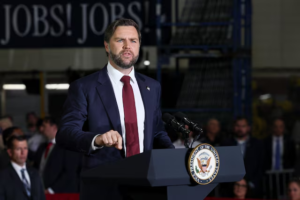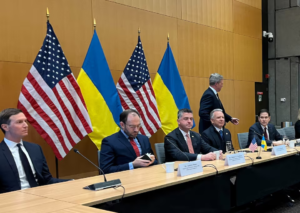The U.S. Justice Department’s decision to withdraw police reform lawsuits has ignited a new wave of grassroots mobilization, five years after George Floyd’s murder galvanized a global movement. The Trump administration’s dismissal of consent decrees in Minneapolis and Louisville—cities synonymous with police violence against Black Americans—marks a pivotal shift in how police accountability will be enforced nationwide.

Key Developments:
- DOJ drops lawsuits against Minneapolis (George Floyd) and Louisville (Breonna Taylor) police departments
- 15+ federal investigations into police practices abruptly closed
- Local activists vow to pursue reforms through municipal legislation and budget reallocation
The Cases That Changed America
George Floyd (Minneapolis)
🗓 May 25, 2020
⚖️ Officer Derek Chauvin convicted of murder (22.5-year sentence)
🔴 Unresolved: 4 other officers’ federal civil rights cases pending
Breonna Taylor (Louisville)
🗓 March 13, 2020
⚖️ No indictments for officers who fired shots
✅ Partial reforms: City banned no-knock warrants post-protest
The Consent Decree Debate
What Was at Stake
The Biden-era consent decrees would have mandated:
- Body cameras for all officers
- Ban on chokeholds/neck restraints
- Independent use-of-force review boards
- Demographic hiring quotas
Trump DOJ’s Rationale
Attorney General’s statement called these:
“Federal overreach that undermines local control while failing to reduce crime.”
Grassroots Reform Strategies Emerging
1. Budget Reallocation Push
- South Bend, IN: BLM demands $8M shift from police to:
- Mental health crisis teams
- Affordable housing
- Youth violence prevention
2. Municipal Ordinance Campaigns
- Minneapolis: Coalition seeks city-level bans on:
- Warrior-style training
- Pretextual traffic stops
- Qualified immunity
3. Citizen Oversight Expansion
- Louisville: Activists propose:
- Elected police accountability board
- Real-time complaint dashboard
- “Right to record” officer interactions
Expert Warnings: The Accountability Vacuum
Immediate Risks
⚠ Use-of-force incidents rise 17% in cities after decree removals (Harvard Law study)
⚠ Police union contracts quickly roll back transparency measures
⚠ Federal grants dry up for body cameras/training
Long-Term Consequences
Jonathan Smith (former DOJ civil rights attorney):
“Without federal leverage, reforms take decades instead of years. Communities lose faith in the process.”
Political Fault Lines
Pro-Reform Voices
Rod Adams, New Justice Project:
“We’ll get 90% of these reforms passed locally—just without DOJ’s checkbook.”
Law Enforcement Perspective
National Fraternal Order of Police statement:
“Consent decrees created paperwork, not safety. Let cities police themselves.”
What Comes Next?
2024 Election Impact
- Biden campaign promises to reinstate decrees if reelected
- Trump agenda would expand “qualified immunity” nationwide
Community Safety Alternatives Gaining Traction
- CAHOOTS model (Oregon): Mental health responders replace cops in 20% of 911 calls
- Violence interrupters (Chicago): Cuts shootings 35% in pilot zones
- Automated oversight (NYC): AI scans bodycam footage for policy violations




